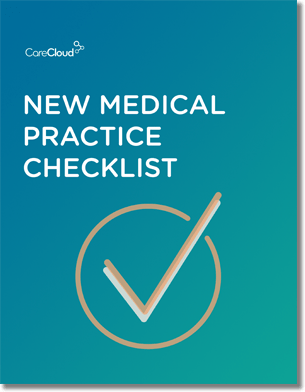We couldn’t possibly wrap up a series on analytics without mentioning the hottest topic in healthcare IT, could we?
EHRs allow practices to track patients by better chronicling the physician-patient experience, which makes for enhanced reporting, improved outcomes, and a more structured view of each patient’s clinical profile.
It’s no joke – we’re talking real-time reporting to make patients happy, which enriches all aspects of your practice. Power Your Practice helps you better understand the benefits of a joint EHR and analytics system with the ninth installment of our Actionable Analytics series.
Integrating Clinical Reporting
Incorporating electronic health records into your analytics will allow your healthcare organization to better track and manage individual patients and groups for improved outcomes and reporting. Real-time, in-depth reporting that utilizes electronic health records is essential for enhancing patient care.
A recent report published in the New England Journal of Medicine — tracking 27,000 adults with diabetes — found that patients whose physicians utilized EHRs received improved standards of care and had better outcomes in less time than patients treated with traditional paper records.
A unified EHR and analytics system can help eliminate as much friction as possible in both the delivery of care to patients and the reimbursement for services from the Centers for Medicare and Medicaid Services. Comprehensive business intelligence systems will help physicians track and report data trends and treatment patterns that will allow them to meet Meaningful Use requirements.
A customized EHR or patient dashboard will allow providers to track the compliance of an individual patient through the patient workflow, create triggers and alerts during the visit (based on demographics, medicines, etc), and ensure that the physician’s dashboard is keeping track of crucial numbers and percentages. These capabilities will help ensure successful Meaningful Use attestation for physicians.
Having access to secure patient data gives providers an increased ability to quickly respond to changes in reimbursement requirements, changes in clinical workflow, and Meaningful Use requests for medical records, test results, and population reporting.
Utilizing and analyzing EHR data on a patient dashboard will help providers collaborate and care for patients more effectively. EHRs that incorporate actionable analytics will facilitate providers who are adopting new business models such as ACOs, and make Meaningful Use attestation easier. Patients will benefit from lower costs and improved care due to minimizing mistakes, reducing unnecessary tests, and eliminating duplicate treatments.
Join us next week for our final installment, which focuses on helping employees work more intelligently with the help of a fully implemented analytics system.

Do you know what you need when setting up a new medical practice?


